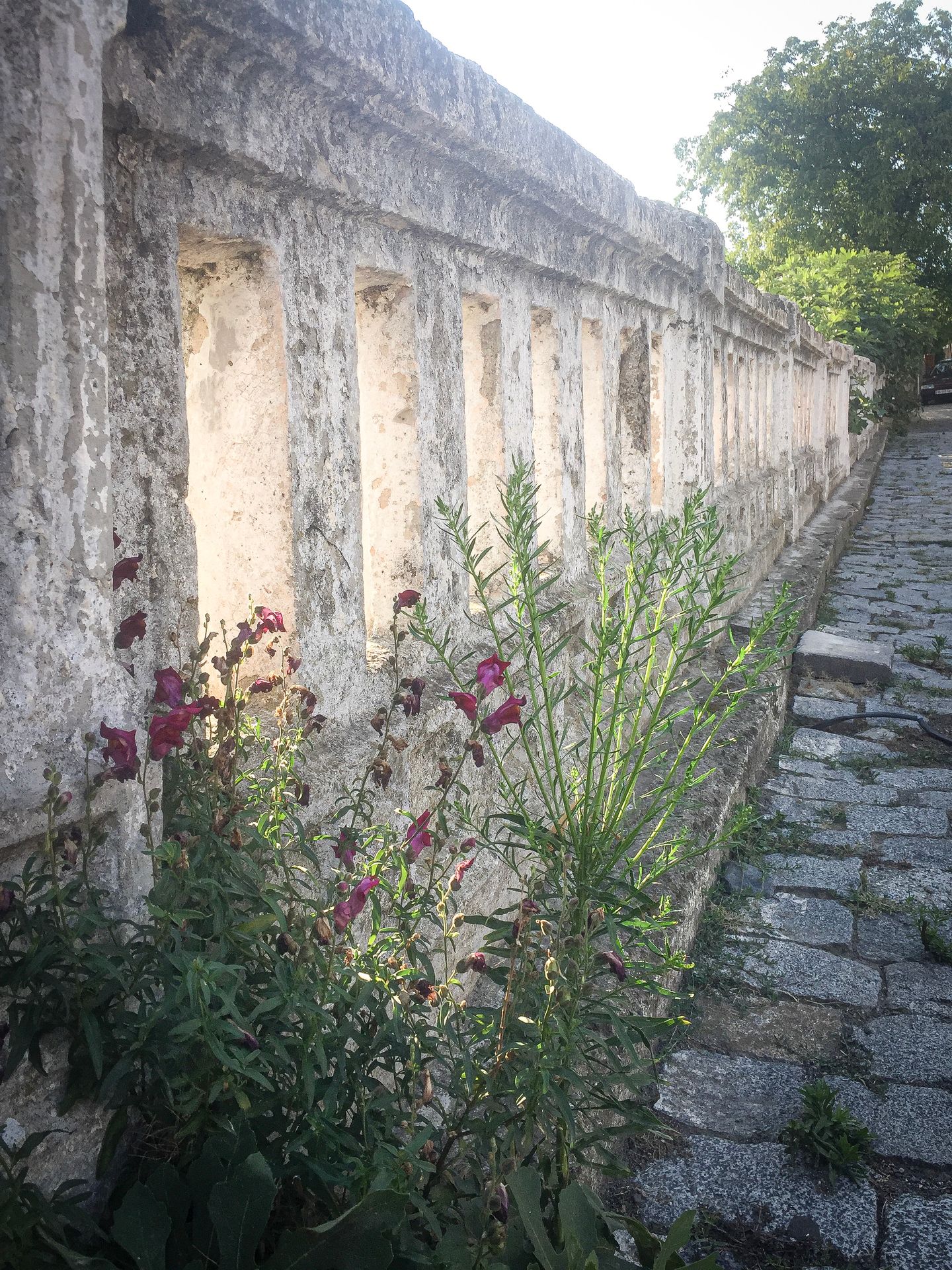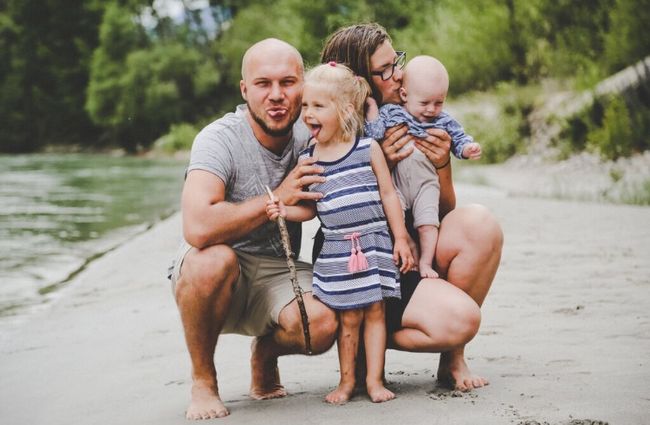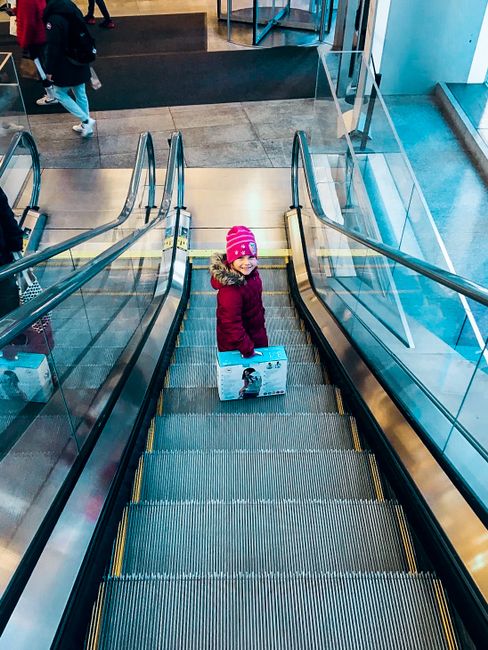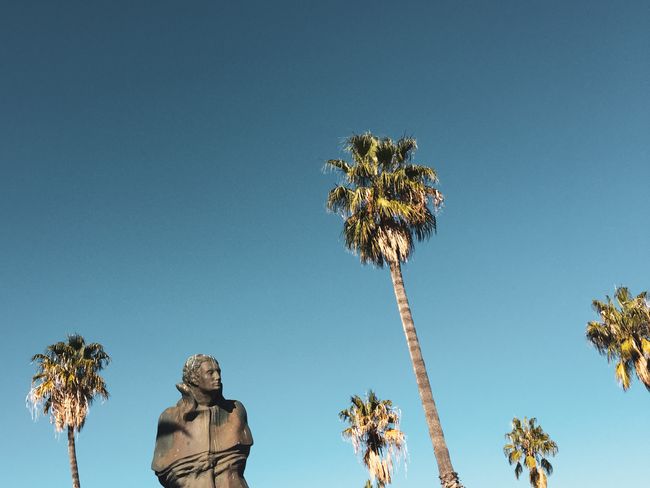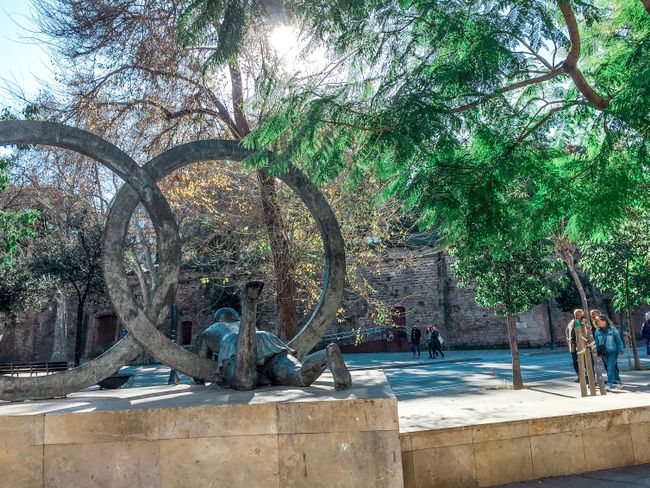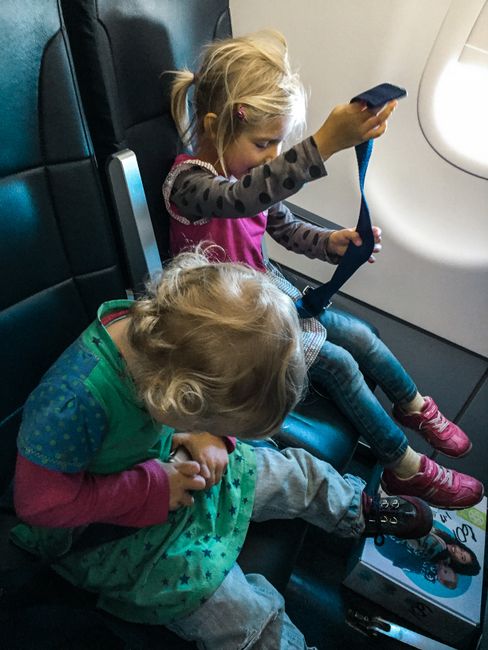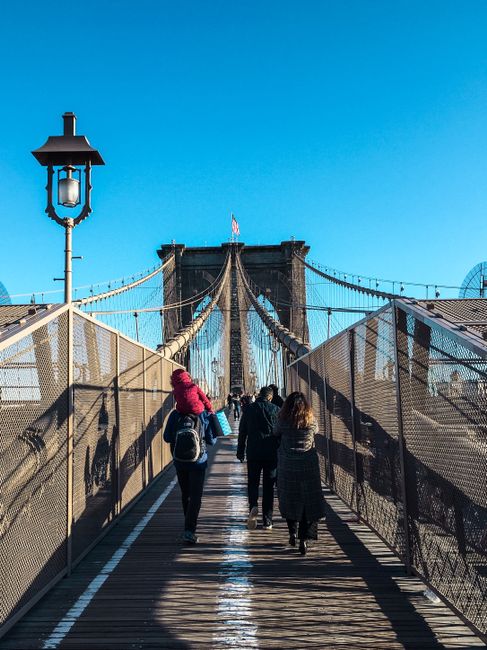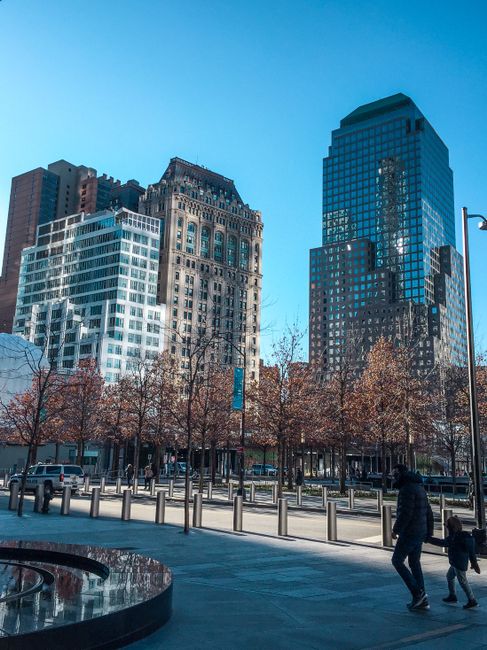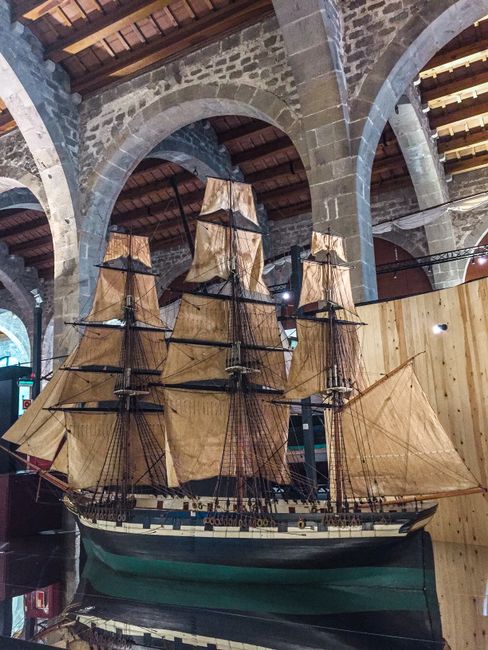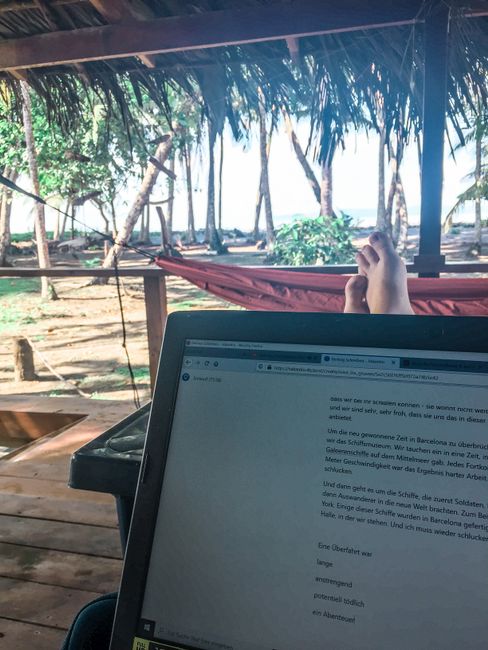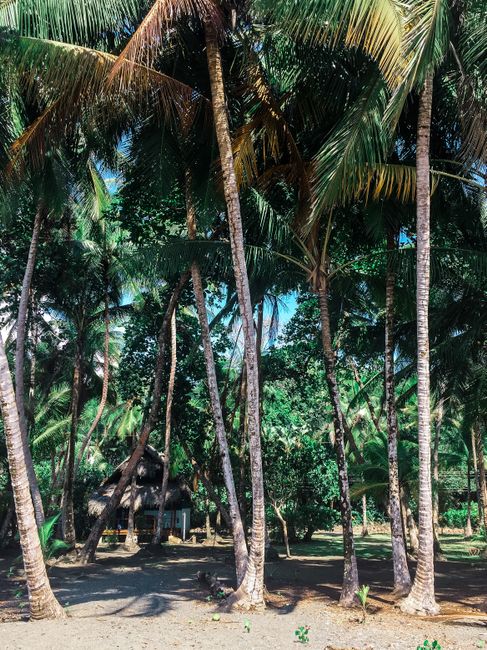Langstreckenhinken
Gepubliceerd: 25.01.2020
Abonneren op de nieuwsbrief
It's the end of January 2020, and we've only traveled halfway around the planet. I'm writing this blog post from a tropical beach in Costa Rica, and less than 10 days ago we were sledding in Switzerland. This is a travel speed that humans can only lag behind.
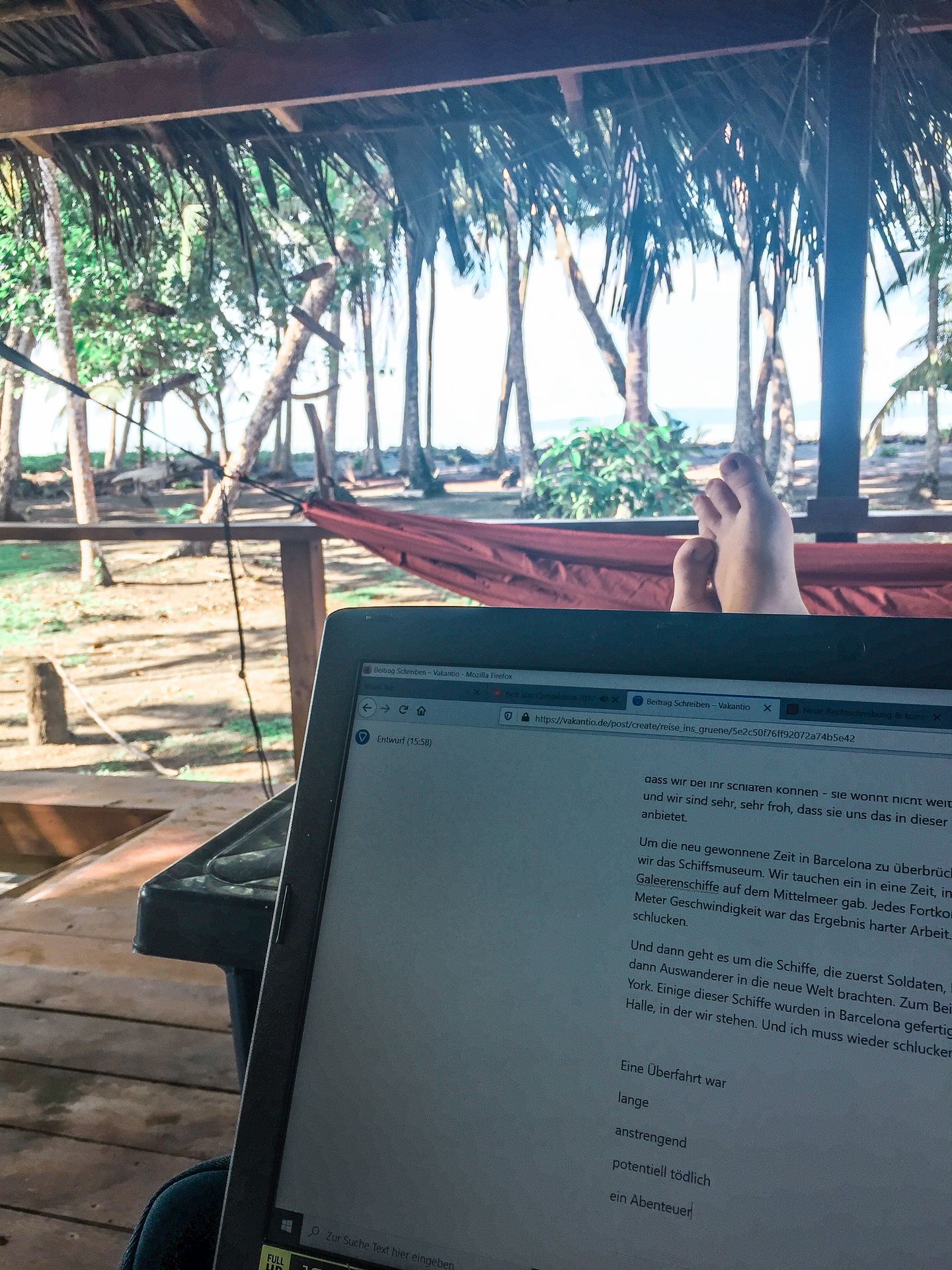
When we boarded the train to Milan in Switzerland, we didn't know what the next few days would be like. All we knew was that we had a lot of flights, weird hours, and long days. And many breaks in between. Instead of traveling for 48 hours straight and rushing from one airport to another, we booked our flights so that we have a few days of rest at each stop. Because we need breaks to catch up.
The first day of the journey is also very relaxed: The children sleep on the train, the first flight to Barcelona goes smoothly, and when we wander through the train station in the Spanish metropolis at midnight, our children are in a good mood and fit. What a start! We enjoy the following days in a quiet little apartment with a rooftop terrace. After many encounters with friends and family, we find the time to sort out impressions and catch up on sleep. Everyone enjoys it and our girls become noticeably calmer and more balanced.

And then it's time to travel again. On Saturday evening, we want to fly to New York. Friends of ours, who live outside the American city, have offered to pick us up at the airport and take us to their log cabin in the woods. How great! On Friday afternoon, armed with our passports, we sit down at the computer to check in online. And then we are shocked. 'Your flight times have changed.' The date. Apparently, the airline has rescheduled the flight for one day. Sunday. Just like that. We frantically search our emails to see if we have missed anything. No email. No announcement, nothing. We are sitting here in Barcelona, with a nice plan of where we will be traveling to, and now a higher power has simply decided to intervene. It takes a few hours of stress, tension, and frantic research until we understand that this flight change is not the result of a snowstorm, but an economic cost-saving measure by the airline that went into effect a month ago. If the flight is not full, it will be canceled. And nobody told us.
Once we understand this, the stress continues - we are one day longer in Barcelona (where do we sleep?) and one day less in New York (what will our hosts say?). We will spend less than 36 hours on American soil - is it really worth our friends driving hours through the forest for that and not getting any sleep? We all decide - no, it's not worth it. And we look for other solutions.
Of course, it would always be an option to just go to a hotel. But that's our last resort. Because hotels with children are very exhausting for us. We are happy when we have our own kitchen, a washing machine somewhere, and more than one room available. And hotels in cities like Barcelona or New York are also very expensive, and it annoys us that we would have to stretch our budget because of such a stupid airline. That's why we are even more grateful that we can sleep at a friend's place in Barcelona for one night. We spend a nice day with him and sleep four of us on his 1.40 meter bed (it's not the only time on our trip). And a friend from New York has offered us to stay at her place - she doesn't live far from the airport and we are very, very grateful that she offers us this in this turbulent time.
To bridge the newly gained time in Barcelona, we visit the maritime museum. We immerse ourselves in a time when there were still galley ships on the Mediterranean. Every progress, every meter of speed was the result of hard work. It makes me swallow.
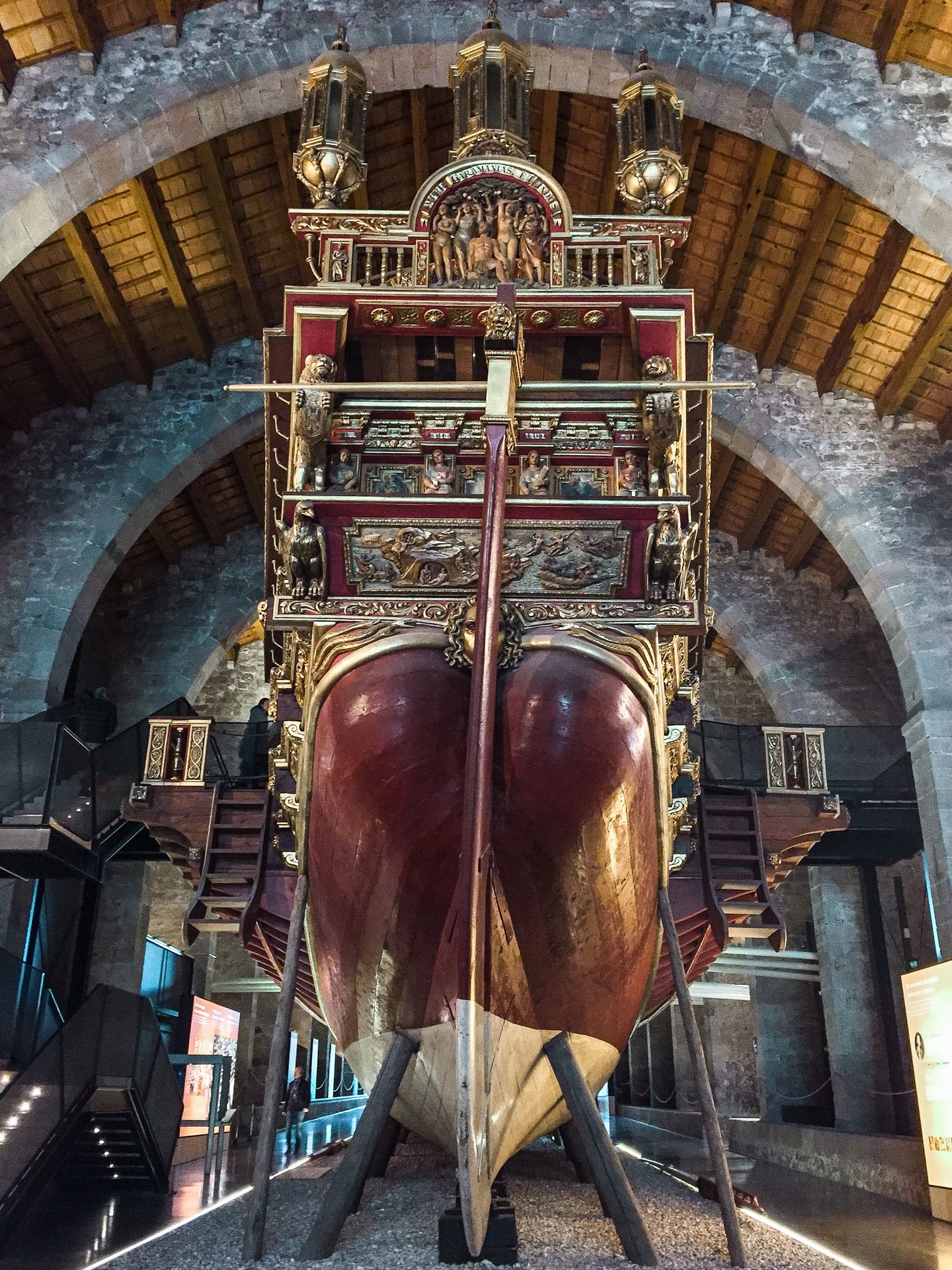
And then it's about the ships that first brought soldiers, conquerors, and then emigrants to the new world. For example, to New York. Some of these ships were made in Barcelona, right in the hall where we stand. And I have to swallow again.
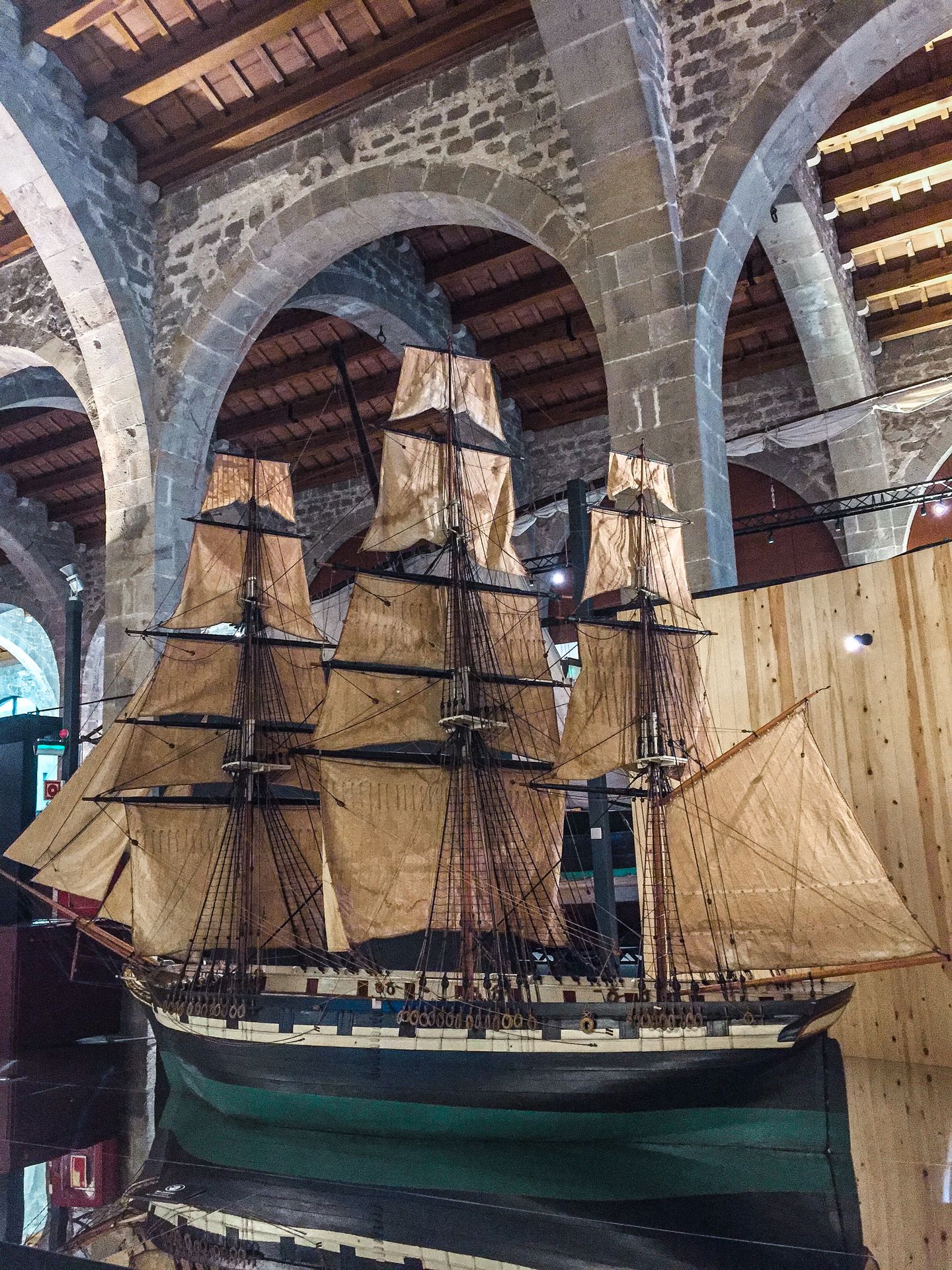
A crossing was
the courage of mankind to reach places that nature denied them
the hope for a better life, willingly blind to the risks
and
quiet fear
For weeks, people of all classes and nationalities languished on ships, traveling over water that they could never survive if it came down to it. They had to mentally catch up with the fact that they were approaching their dreams at a rapid pace. Without knowing what would happen along the way. Crazy humanity.
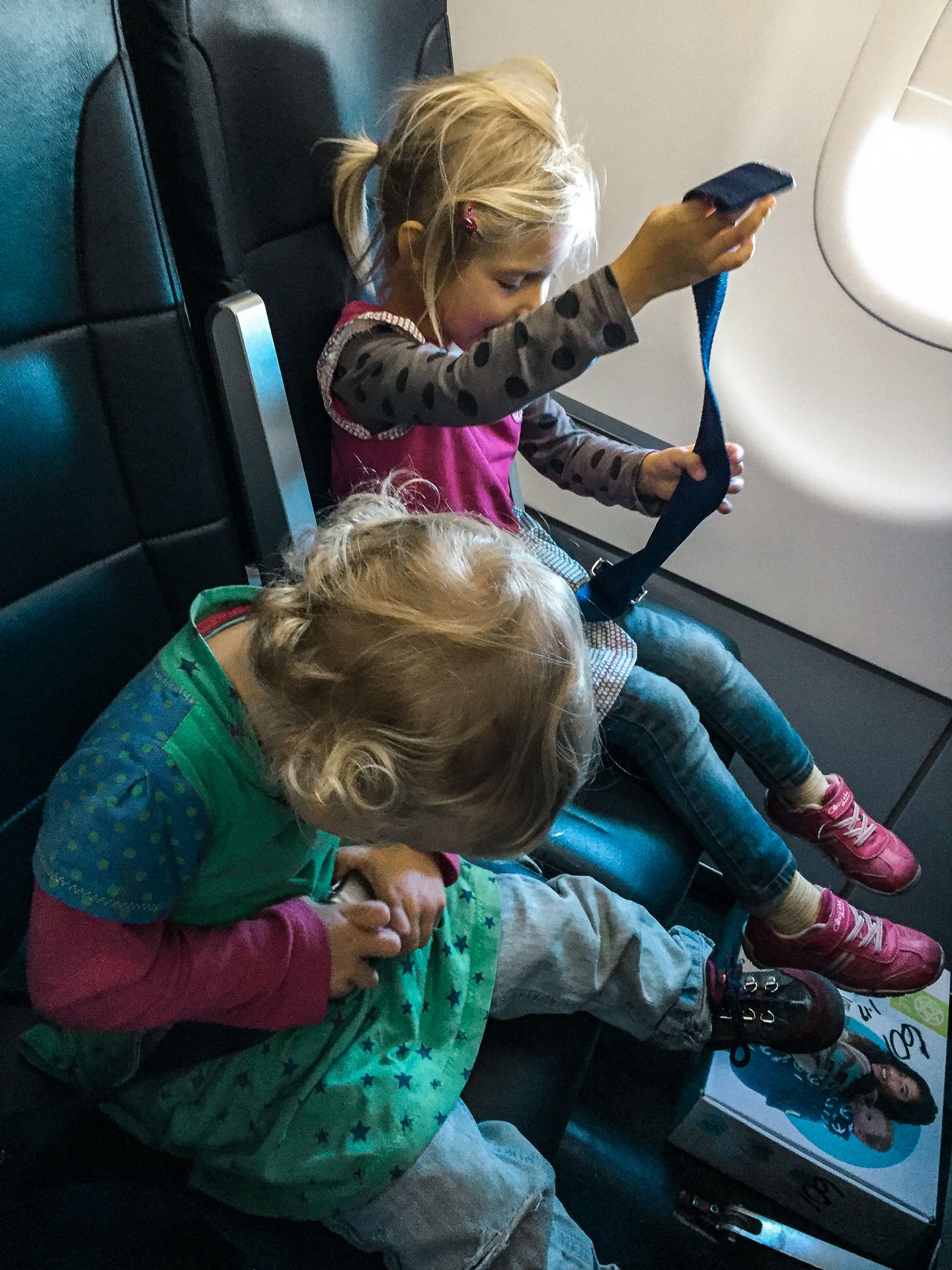
A few hours after these impressions, we are at the airport, which is only a few kilometers from the ships. Everything goes well, and despite strong winds, we sit in our seats on time, fastened and ready. We are approaching our dreams at a rapid pace. The distance that galley prisoners were spared, the emigrants endured for weeks in the belly of a ship, we cover in one night. We arrive tired in New York and gratefully lie down on our hosts' couch. Our bodies have arrived, but our thoughts have not. They are still swimming just off the coast of Barcelona.
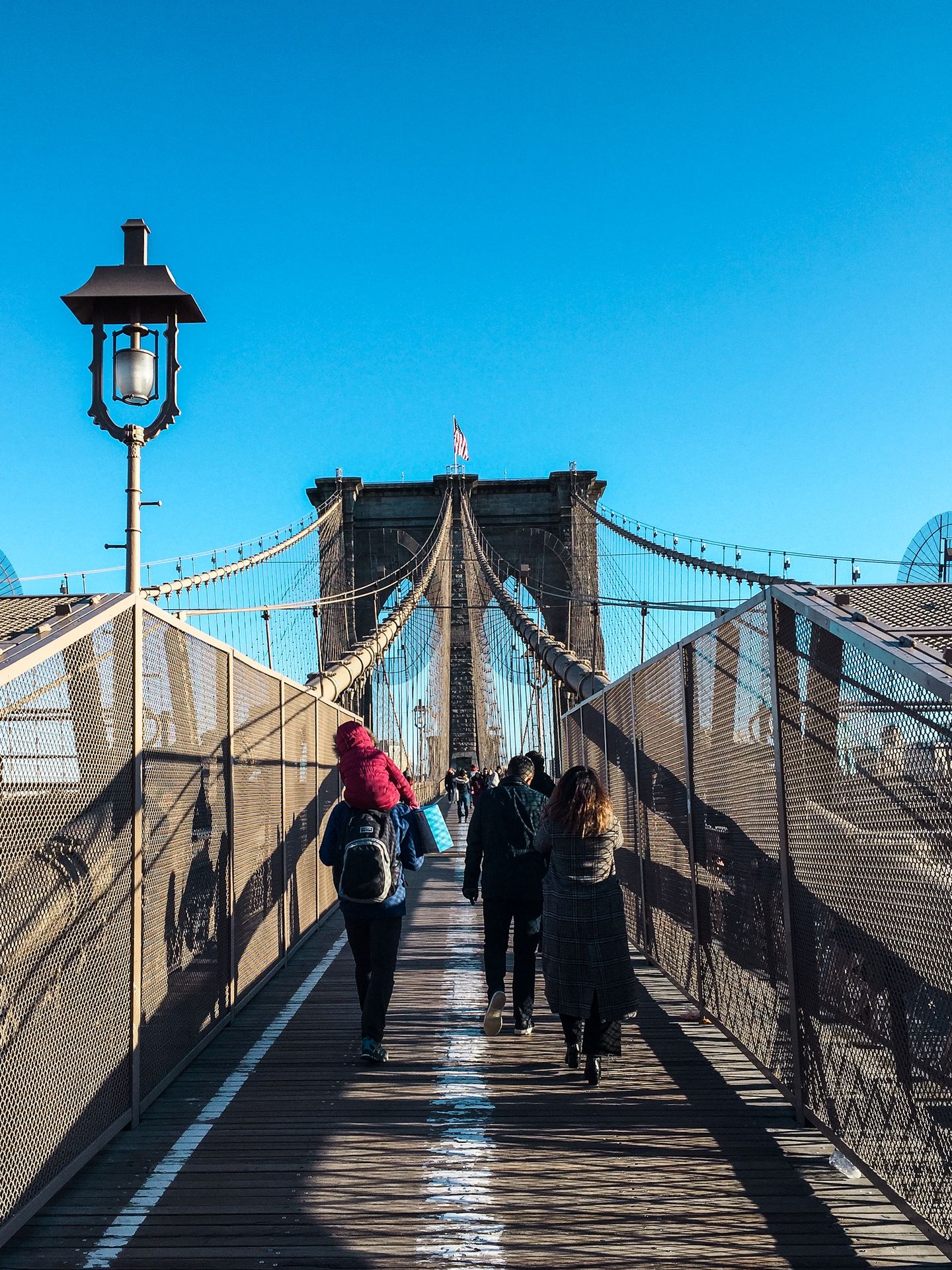
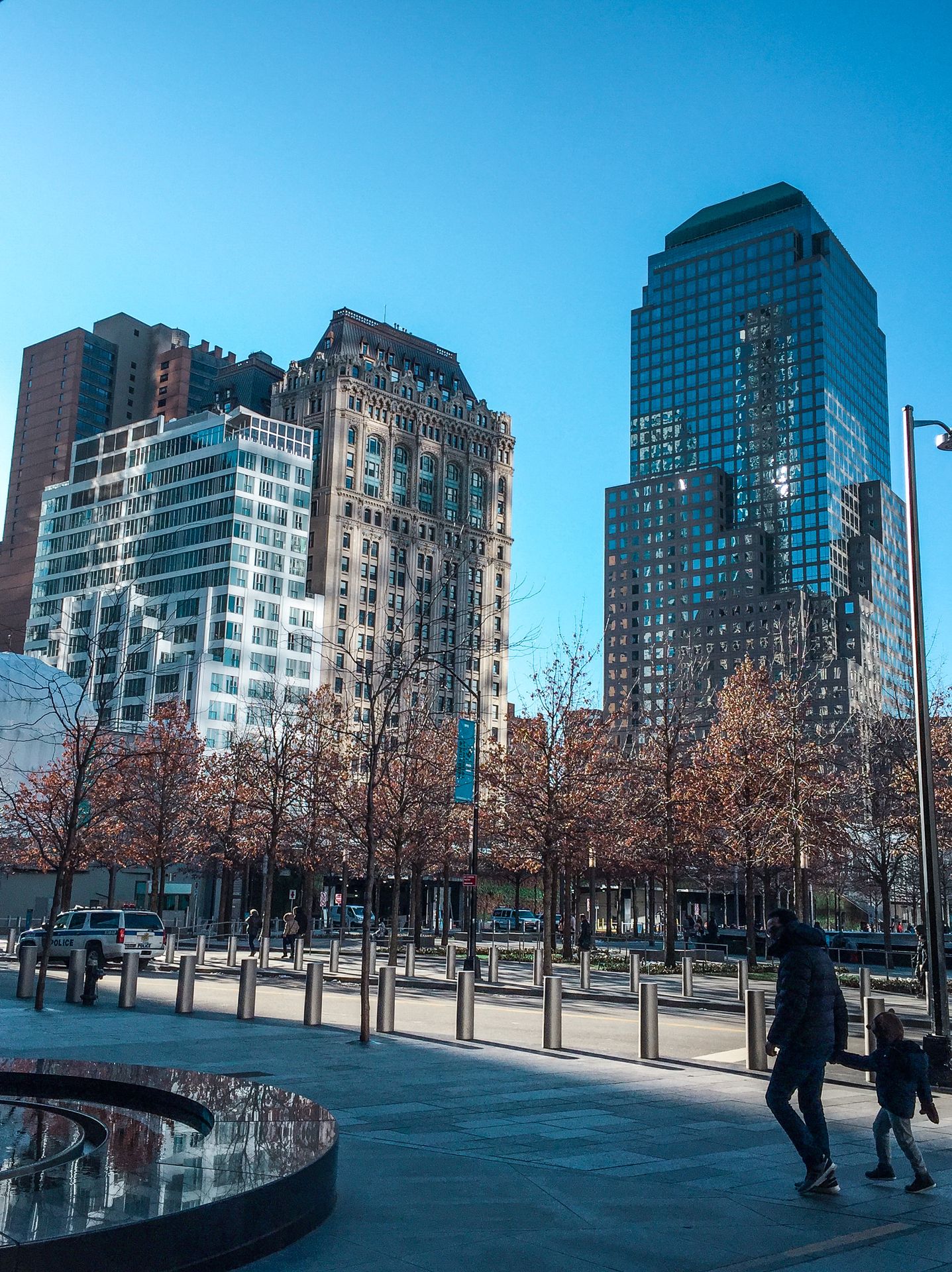
We have one day in New York. It's cold and sunny, a freezing wind blows through the streets of Manhattan. Our time is filled - we meet people, walk, see as much as possible, and have no time to feel tired or left behind. It's as diffuse as a dream. Our children are like on drugs. It's a bit like Christmas for them - little sleep, lots of sugar, adults wanting to talk all the time - and accordingly, they are whiny, hyperactive, and exhausting. They wake up at 4 a.m. - in a poorly soundproofed two-room apartment - and get to watch Peppa Pig more than ever before in their lives. Fortunately, we will be getting up early the next morning anyway to go back to the airport. New York is just a stop. And while our heart tries to warm up to the snow, the big city, and the people here, we board a plane with cheerful Americans and fly over Florida to Costa Rica. But we are no longer in a good mood - we are just exhausted. The speed is madness. Just a few days ago we were with familiar people, on a continent where we know our way around, and now below our airplane is completely uncharted territory.
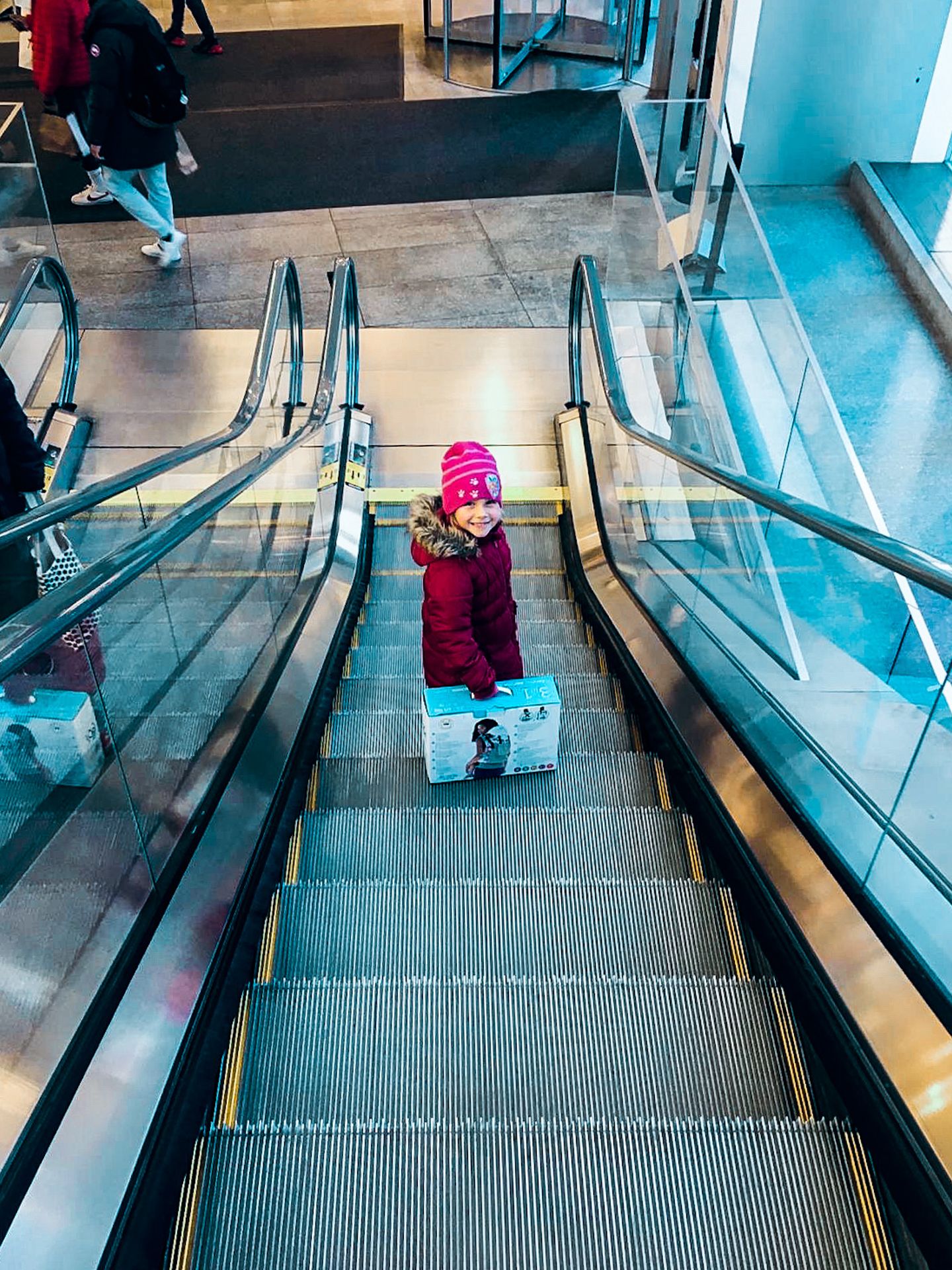
When we arrive in San Jose, the capital of Costa Rica, the foreignness is tangible. It smells of humidity, the colors literally jump out at us, and people look at us with polite disinterest. But we are not receptive. Eating, sleeping. These are our needs. We go to a conveniently located hostel near downtown (also here - Peppa Pig at 5 in the morning) and sleep as much as possible with jet lag. Our bodies haven't arrived yet either.
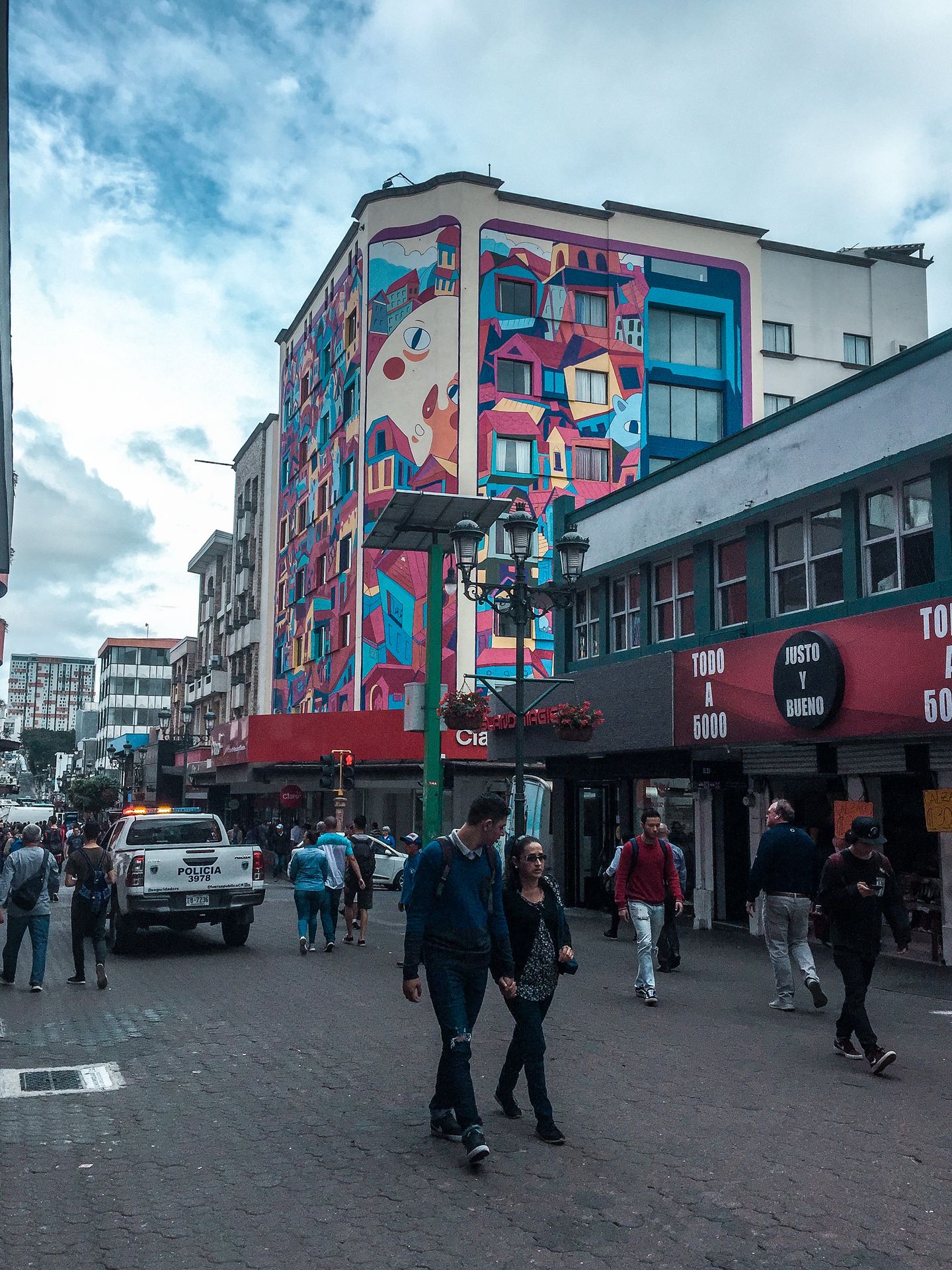
We take another day off, go shopping, get internet on our phones (the compass of today's explorers), eat, and sleep again. And we know that the next day will be tough. Because we have found accommodation in the south of the country. Right on the beach, that's where we want to go and unwind. We know from the photos that it will be worth all this traveling, but the last leg of the journey is causing us stomachaches again.
Right on time for the regular Peppa Pig time, we get on the bus that takes us to the south. I breathe a sigh of relief - at least the travel speed is appropriate now. We're not zooming across countries and oceans, no, we're stuck in commuter traffic in San Jose. It's slow going, and we calmly observe the houses and trees passing by. The further we get from the city, the denser the jungle becomes, and we see crocodiles and interesting birds. I could get used to this speed, but after so many days on the road, our children are simply exhausted. They are tired, can't sleep, are hungry but don't want to eat the provisions, want to cuddle but don't want physical contact. After just a few hours, we wonder when we will finally arrive, and we know that we will be sitting on this bus for almost the entire day.
We have been told to get off at the final stop. It's finally time - in the afternoon, the bus driver signals that we can get off the long-distance bus. We get off - tropical heat fogs up my glasses - and try to orient ourselves. We have arrived in a small town on the coast. Actually, it's only a few kilometers from here to the peninsula where we want to stay, but because there is no direct road, you have to drive all the way around. We have to take another bus to our cabin in Zancudo and don't know where it departs from. After a short time, we realize that we got off at the wrong stop - there would have been another bus stop - and our onward journey becomes a little more complicated because of that. And we don't have much time left because the last bus to Zancudo leaves in fifteen minutes. Hectic again. Fortunately, a helpful employee drives us to the mentioned bus stop. Once again, we are grateful for such nice people as we get on a rickety local bus, the windows are open and let in flapping air. Now the real adventure begins because we quickly leave the paved road and rattle through the hinterland. The jungle expands and reveals meadows with cows, gardens, and farms. It looks peaceful, but completely out of this world. I know this feeling from many places I have been to - but now I am in a world region where I have never been before, and it feels completely absurd. Everyone around us knows each other, coming back from shopping in the big city (the village where we got on) or from a doctor's appointment. After an hour, the bus stops at an Indian reservation. They indicate that we should wait for the connecting bus here. There is an open hall that serves as a supermarket, there are Indian women in traditional clothes, and there are plenty of motorcycles. People have dressed up and meet in a way that you might meet on the promenade in Nice. And not every day in front of Claudia's Enchilada stand. It seems unreal.
We continue with the next bus. As soon as the bus stops, there is a smell of leaking gas, but as soon as it continues driving, the wind that blows through the open windows covers up the pungent smell. Our children enjoy the many animals on the roadside, and Peppa Pig is no longer the topic of the day. And indeed - after over 12 hours of bus travel, 4 flights, lots of taxi rides, and several train rides, we have arrived. We get off at the right place. We are given a key and gratefully throw ourselves onto the bed. We have arrived. But in the next few days, it will show what body parts have been left behind along the way, where our heart is currently traveling, and whether our thoughts will make it to the final destination.
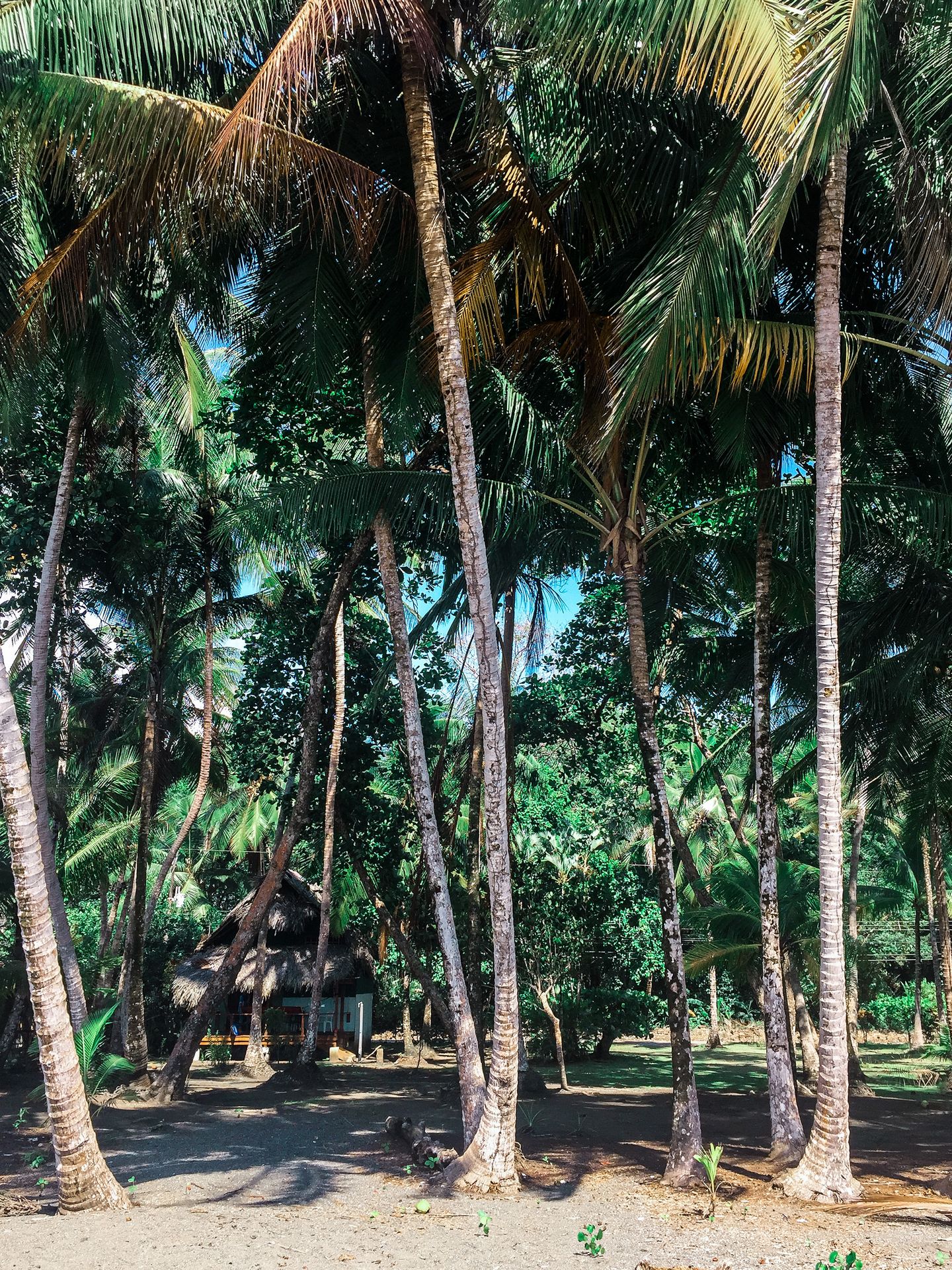
A crossing is
the courage of humanity to embrace new things
the hope for contentment, willingly blind to the hardships
and
quiet gratitude.
Abonneren op de nieuwsbrief
Antwoord
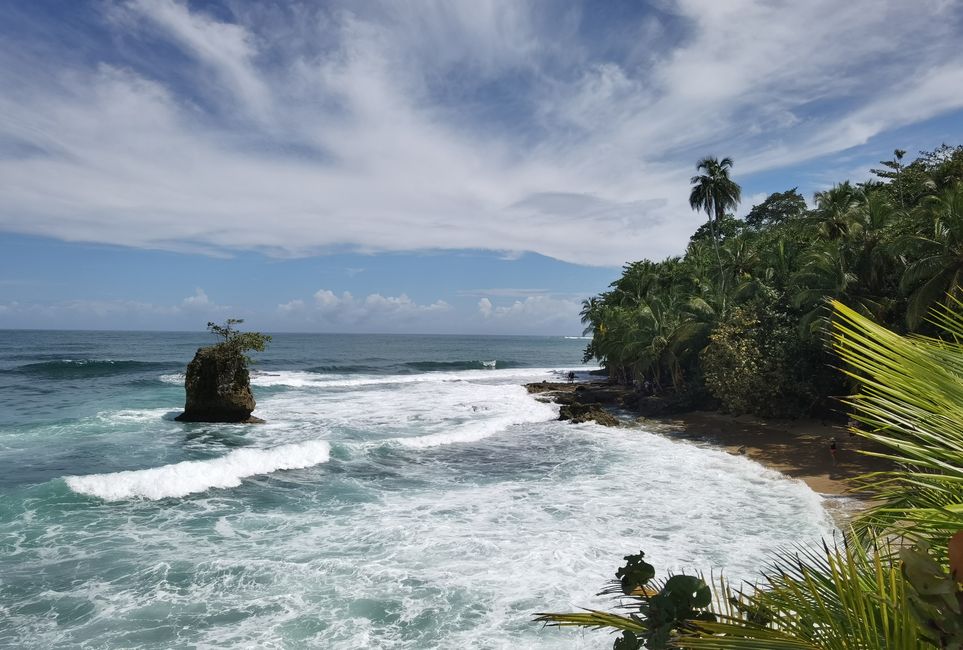
Reisverslagen Costa Rica
